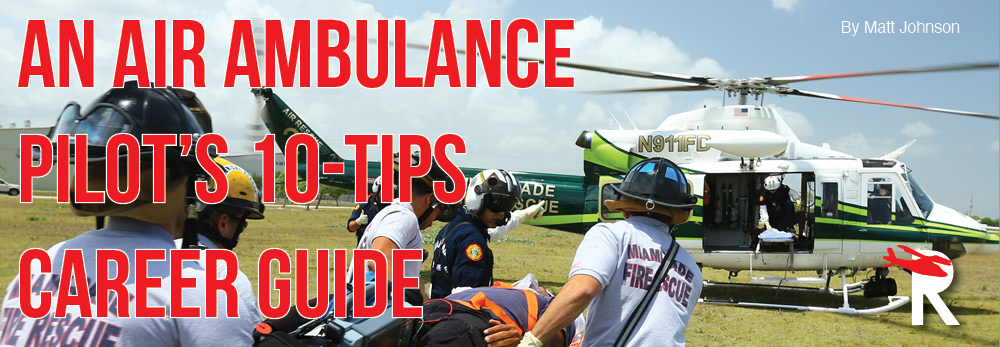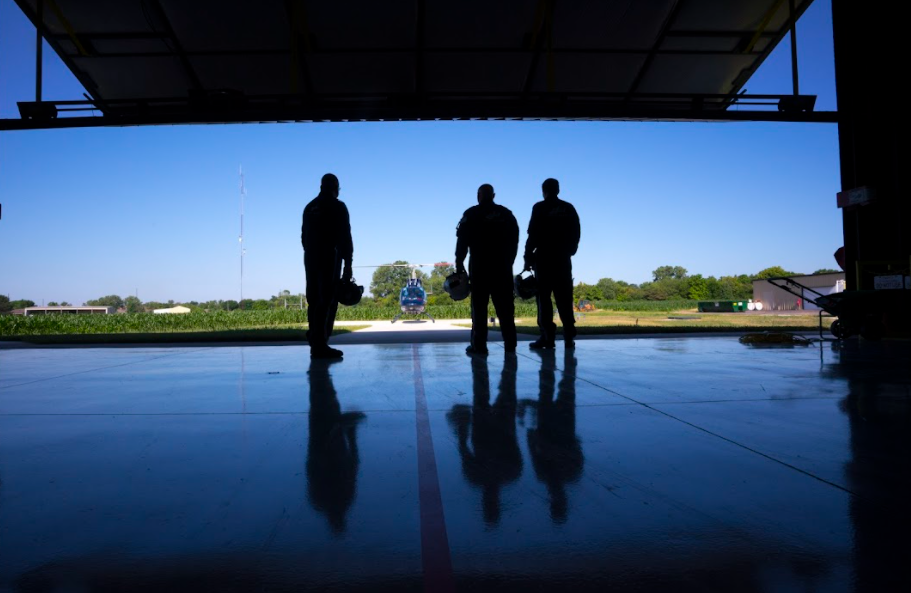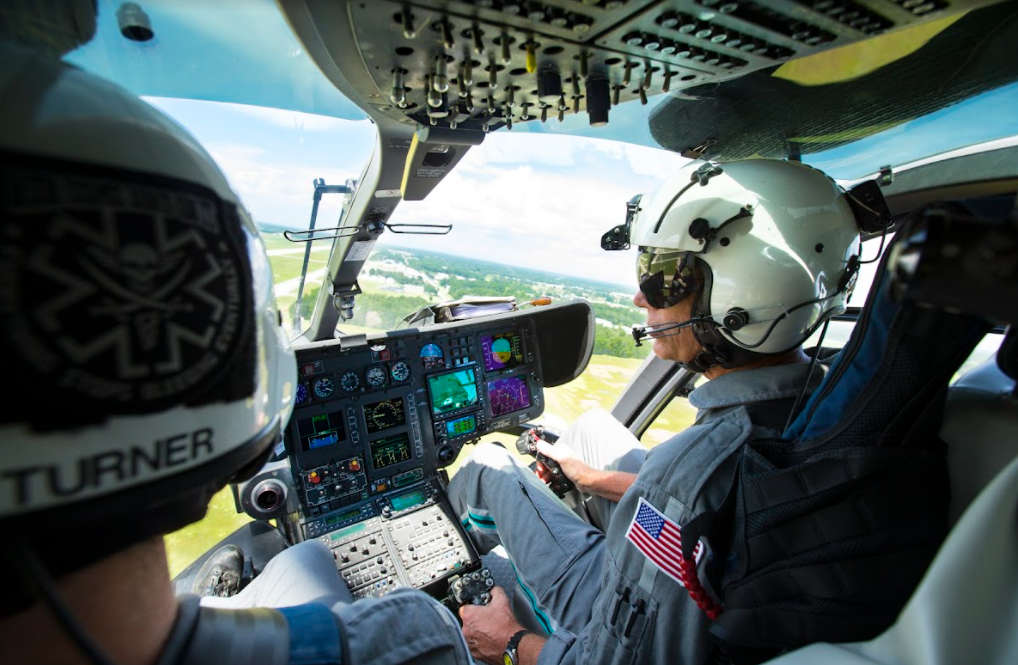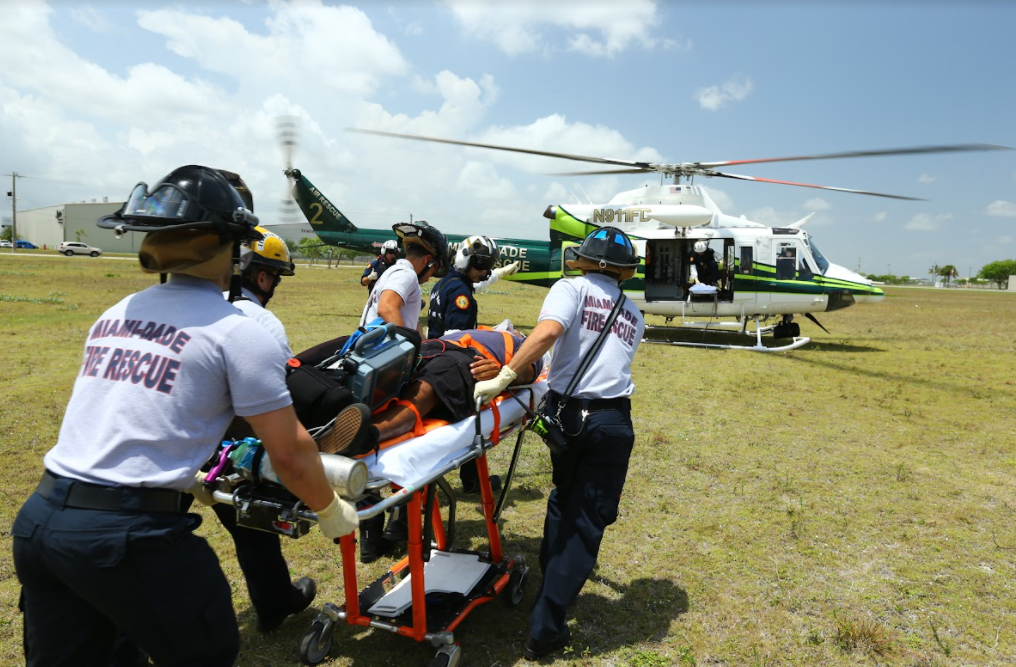|
Oct
11
2021
|
|
Posted 4 years 143 days ago ago by Admin
|
|

The success of an air ambulance pilot isn’t written on an elusive list of trade secrets buried deep in a frightful dark abyss. Instead, the necessary tenets are generally in plain sight and, unfortunately, an abundance of what we now know comes from the tragedies of those that came before us. But, as the worn-out cliché goes: “We don’t know what we don’t know.” Not learning from others (mentors) who are successful in this unique field is not only unprofessional on the part of the pilot new to the air ambulance arena, but gravely hazardous as well. Awareness of the lack of knowledge and skill sets needed and being able to say “I don’t know” is vital to success. You have to be thirsty for knowledge if you want to physically and mentally survive. Don’t rely on sheer luck.
Incompetence is dangerous on many levels because its ill effects can be very insidious. The psychological literature is full of supportive information on just how insidious and blind incompetence can be. Not only does incompetence lead to bad decision choices, but incompetence robs you of the ability to even realize that bad choices are being made. The failure to recognize that one has performed poorly will instead leave one to assume that he or she has performed well. As a result, the incompetent tend to grossly overestimate their abilities. And this is where the “lucky” pilot comes into the picture, as they are frequently left with the mistaken impression that they are doing just fine when in reality they are merely lucky with a false sense of confidence. This philosophy is nothing new; over a century ago Charles Darwin, the naturalist, sagely noted, "Ignorance more frequently begets confidence than does knowledge.”
Just because we survive a flight doesn’t mean that it was a successful flight. Yes, landing without bent metal or injuries to occupants is a good thing but sometimes luck plays a part in this. Eventually, luck will run out and equipment will be damaged—or worse. The search for a transcendent level of knowledge required to be a safe and efficient air ambulance pilot is available to us and it is up to all pilots, both the new and experienced alike, to seek out that knowledge from mentors, instructors, check pilots, and pertinent technical resources.

While your success as an air ambulance pilot is not exclusive to these points, here are 10 principles that can help pave your path to a successful career. These points aren’t necessarily in a specific order, however you will find (in time) that they are all connected in some ways.
(1) MINDSET – avoid mission mentality
Mindset is critical. Understand this; the overwhelming majority of air medical aircraft in this country are operated under Part 135 regulations and not under public use / public safety rules. Take a look around your pilot’s office at your base; you will see a copy of your company’s Air Carrier Certificate hanging on the wall in plain view. In translation, you operate under many different rules and regulations. You are not flying “missions” in terms of the types of operations conducted in combat or during government-funded public-safety operations. Unlike the firefighter who runs into the burning building or the police officer that goes towards the sound of gunfire, we do not take flights under the known premise that it may be at any and all costs. Your job is to fly your medical team members from points A to B as safely and efficiently as possible. This transition for many from the various branches of the armed forces and public safety backgrounds can be difficult and requires a “reprogramming” of sorts. Regardless of your background, you will see things you likely never have nor ever wanted to and must be prepared to focus on flying the aircraft safely and efficiently.
(2) ADAPTABILITY – expect change
From the interpersonal perspective be prepared for changes in aviation colleagues, medical crew members, management, etc. Be prepared for different opinions, styles, and personalities. From the aviation operational perspective be prepared and adaptive to frequent policy and regulation changes. Be adaptive to things you may have never experienced in your previous career; single-pilot HAA operations can, at times, be very workload intensive. For some, it may be the first time in their career they have been the lone aviator in the aircraft making it rather overwhelming initially. Be prepared for numerous changes on the fly, coordinate changes for landing zones, multiple radios, etc. Unfortunately, it isn’t too uncommon to find yourself in a “back-up” aircraft when your primary aircraft is unavailable for maintenance, etc. This aircraft may be a completely different make and model with little to no similarities to your primary aircraft.

(3) DEVELOP GOOD HABITS – shed the bad
Your colleagues will see your habits, both the good and the bad! Developing good habits will not only keep you alive, it will pay dividends in terms of team-building. As with most things in life it is often easier said than done. But it doesn’t have to be impossible. In the #1 New York Times bestseller Atomic Habits written by James Clear, the author outlines four laws of behavior change that can be applied to either develop good habits or break bad ones. These guiding principles are: make it obvious, make it attractive, make it easy and make it satisfying. Shedding a bad habit can be accomplished by reversing the aforementioned principles. His principles are centered on the concept that small, incremental changes can have a drastic overall effect. Clear’s book is a must-read for all professions.
(4) EMOTIONAL INTELLIGENCE – acquire it
In simple terms, emotional intelligence (EI) is the ability to identify and manage one’s emotions. Although a relatively new construct, EI has become a significant factor in today’s workforce of all disciplines. Many agree that it will impact how we work and will be significant moving forward. While the numerous aspects of EI would be impossible to cover in this brief article, a few key competencies that define EI are: emotional self-awareness – or your ability to know your own emotions and their effects on your performance and those around you. Emotional self-regulation- is the ability to keep not only any of your disruptive emotions in check but also your impulses in check in order to maintain your effectiveness under stressful conditions. Organizational awareness- is your ability to read your team’s emotional status, and identify influencers, networks, and the dynamics that matter in decision-making.

(5) MASTERY OF WEATHER – an absolute must
Plain and simple, the weather will make you or break you, literally in the sense of getting you hurt or worse and figuratively in terms of fellow crew members losing confidence in your abilities. A lot of pilots are turned off by having to study the traditional weather theory that is commonplace in most of today’s aviation curriculums. As a result, a lot of pilots are weak on weather; we learned this a few years ago in a detailed study conducted by Embry-Riddle that revealed subpar knowledge at all pilot certificate levels.
Weather mastery isn’t about memorizing boring weather theory. Instead, it is truly understanding what weather products are available to you—and how to use them. Know the big picture then focus on the micro details and ask yourself: What is driving the current weather situation? Knowing the temporal and spatial resolution of the weather products is critical.
We frequently bet our lives on AWOS, ASOS, and radar systems, but few truly understand how they work, their limitations, and why they are frequently inaccurate. The same goes for TAFs and just how unintentionally deceptive they can be.
(6) PROFESSIONALISM – set the tone and lead by example
If you think that you are a professional simply because you get a paycheck or that you meet the minimum test standards and passed your proficiency check, you are sorely mistaken. What we do when no one is looking says a lot about our character and level of professionalism or lack thereof. Equally important, what you say and your actions speak volumes when people are listening and looking. You are representing your company, and for hospital-based programs, your company’s customers. Treat the hospital security guard and janitorial worker with the same respect as your crew members. Don’t let your bad day become the representation of your company and program.
(7) PERSONAL HEALTH – protect it!
Let’s face it, our FAA Medical Certificate is a necessary permission slip required for our profession. If your health slides in the wrong direction, it can be difficult or impossible to get it back. The cockpit brings obvious challenges with confined seating, noise, and vibrations. Couple this with a lot of sitting that you will do as an HAA pilot and your overall health and fitness can wander if you don’t maintain fitness discipline (remember building habits).
One of the biggest factors affecting your health as an HAA pilot is sleep. Nearly every aspect of our well-being and mental health is impacted by sleep. We have been taught since a young age that the ideal amount of sleep is seven to eight hours. Unfortunately, many don’t achieve this goal. Research has shown that 65% of adults in the U.S. fail to get the necessary restorative sleep their bodies need. Long shifts, rotating shifts, and bad habits harmoniously work against good sleep habits and require a great deal of discipline to overcome. Take the time to learn about fatigue and the mitigation strategies to manage it. Chronic fatigue can lead to numerous medical conditions that can be career-ending.
(8) BALANCE – and the endless search for it.
The search for the perfect balance to the life-work equation is an enigma of sorts. Focus too deeply on one area and other parts of our lives will drift away to a point of hibernation that often leads to damage in one or BOTH areas. You have to learn to counter-balance and determine what time needs to be spent and on what. Consider this valuable quote from another best-selling book, The One Thing by Gary Keller and Jay Papasan: “When you gamble with your time, you may be placing a bet you can’t cover. Even if you’re sure you can win, be careful that you can live with what you lose.”
(9) STRIVE FOR PROFICIENCY – not just currency.
Wanting to do something and actually doing it takes discipline. Maintaining currency as an HAA pilot won’t be an issue; proficiency on the other hand is a different animal. It may appear purely academic on the surface but in practicality one thing that I have found to help pilots, especially those new to HAA, is to engage in reflective-journaling. After each flight and each shift, whether you flew or not take a couple of minutes and answer two simple questions: (1) What did I learn today that I can do again and again? (2) What did I learn that I will strive to not repeat? Writing down just a few words and reviewing them periodically will make a huge impact on your performance.
(10) COMMUNICATION– beyond the loop.
Last but certainly not least, communication is vital to your success as an HAA pilot. Communicating in the HAA environment can be challenging; the setting can go from static to dynamic in just moments. For communication to be effective, it requires clarity of thought, something not always easy to do under circumstances you will encounter. Communication and critical thinking are intricately connected and you will utilize this paired set of skills continuously. The communication element of your HAA pilot position can make or break crew dynamics and create roadblocks to teambuilding. Make it a habit to listen to understand, not just to listen to respond.